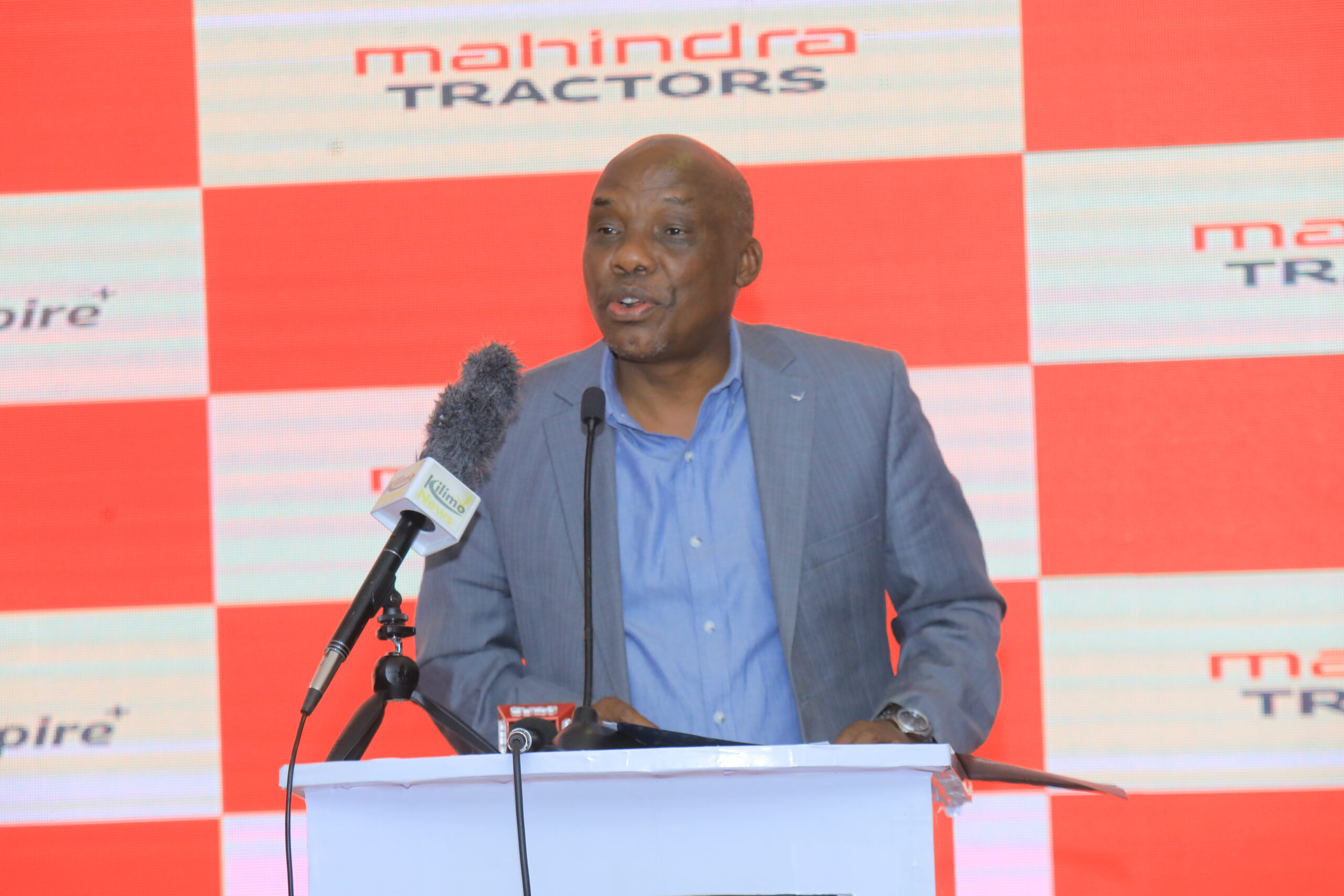Appointed as the main distributor for Mahindra Tractors in Kenya, Simba Colt Aspire Ltd., is a trusted name in Kenya’s automotive and agricultural sectors, marking a significant milestone in the company’s efforts to enhance the farming experience for the estimated 4.5 million Kenyan smallholder farmers.
The collaboration aims to support farming mechanization through the provision of a comprehensive range of reliable and high-performance tractors for farmers. This is in keeping with the government’s objectives of improving agricultural productivity towards achieving food security in the country.
Speaking during the launch, that was officiated by Dr. Paul Rono, Principal Secretary (PS), State Department of Crop Development & Agricultural Research, Dinesh Kotecha, Group Chief Executive, Simba Corporation called on the government to zero rate the 16 percent Value Added Tax (VAT) currently levied on farm implements, among other incentives for farmers.
“Our commitment to empower farmers is aligned with government initiatives aimed at supporting small scale and medium sized farmers to mechanize. Zero rating VAT on farm implements, same as tractors which don’t attract any duty or VAT, will encourage mechanization by reducing the cost of acquisition of the various additional implements a farmer would need for a complete end-to-end solution in land preparation and management”, said Kotecha.
Noting that almost every farm would need a tractor to improve productivity, Kotecha added that any financial incentives extended to farmers towards mechanisation would be a boon to the economy through job creation as well as other multiplier effects that would accrue in the various crop value chains.
With the ambitious aim of transforming and enriching farmers’ lives, Mahindra Tractors will now be available in the country in three variants offering 25 Horse power (HP), 75 HP and 92 HP, namely Mahindra 2025, Mahindra 6075 and Mahindra 9200 respectively.
While making his key note address, PS Dr. Rono commended Simba Corporation and Mahindra for the partnership which he said was an indicator of the private sector’s confidence in the local economy, and in particular agricultural development opportunities in the country.
“I am happy to note that Mahindra Tractors, renowned for its cutting-edge technology, robust design, and fuel-efficient engines, is keen on supporting and empowering Kenyan farmers, both large and small. This will go a long way in supporting government efforts to put more land into productive use, build a robust and efficient agricultural sector, while also improving farmer livelihoods and contributing to economic growth”, he said.
According to Naresh Leekha, Group Managing Director, Motors Division, Simba Corporation, the partnership with Mahindra introduces a new era of efficiency, reliability, and innovation to the Kenyan agricultural sector, promising to revolutionize farming practices in the country. Simba Colt Aspire Ltd, he said has already identified key markets in the western, Nyanza, Narok, Nakuru and Mombasa regions, with immediate roll-out plans in the country that averages about 1,500 tractor sales annually.
“We are delighted to bring Mahindra Tractors that are simply tough and efficient, to the Kenyan market in partnership with Simba Corporation Ltd. This collaboration aims to strengthen the accessibility of Mahindra Tractors across Kenya and ensure prompt service and support. We aim to be the top choice of farmers in Kenya”, said Kedar Apte, Chief of International Operations, Farm Equipment Sector, Mahindra & Mahindra Ltd.
Mahindra Tractors will be offered through Simba Colt Aspire Ltd.’s, 6 branches across Kenya located in Nairobi, Kisumu, Narok, Kisii, Mombasa & Nyeri as well as 3 tractor dealers located in Nakuru, Kericho & Nairobi. All Mahindra Tractors in Kenya will be offered with an industry leading warranty of 3 years or 3000 hours, from the time of purchase.
According to the Agricultural Sector Transformation and Growth Strategy (ASTGS), agricultural mechanisation in Kenya stands at 30 per cent of arable land. The government intends to increase this to over 50 percent by the year 2029.
